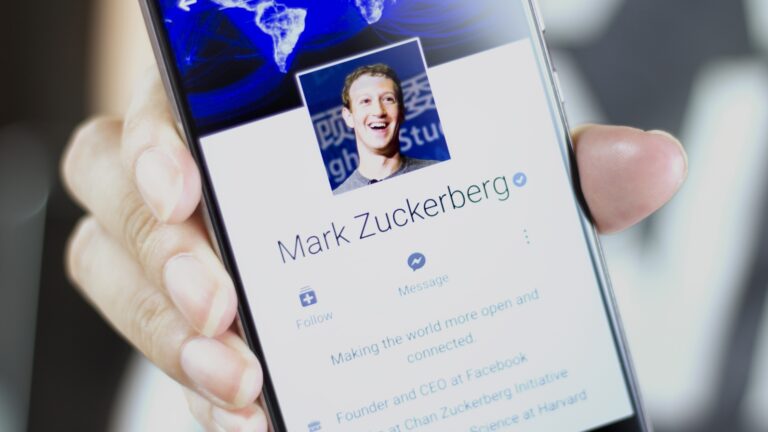Ziv Koren states the problem succinctly. “Ninety-nine percent of all the websites out there belong to small businesses or individuals. What do they all have in common? Virtually no traffic.”
Koren’s answer to this problem forms the basis of his company MyWebees. “If you can’t get the traffic to your website, then let’s get the website to where the traffic is,” quips the Israeli company’s CEO.
Where’s the traffic? With more than 900 million users, Facebook is clearly the place to be if you want your business to be seen by more than a trickle of accidental tourists.
MyWebees takes your existing website and transforms it into a Facebook business page. This is not the same as other companies like Pagemodu or TabSites that help you create a business page by adding functionality to the page itself. Rather, MyWebees re-sizes and re-orders your site so that it fits into Facebook, either as its own business page or a pop-up from a user’s Timeline.
“We can fit most sites into about 30% of the original while still keeping them usable in terms of the user interface,” Koren says. The technology to make this happen is tricky enough that MyWebees has applied for a patent on the implementation.
Since its April 2011 alpha launch, MyWebees has helped 27,000 users create their own Facebook business pages.
Mobile optimized
But why stop there? MyWebees can take your Facebook data and turn it into a five-page mobile-optimized website with all your critical information so that when someone searches for your site on an Android or iPhone, your regular non-optimized site won’t pop up.
In this area, MyWebees is also not alone. “Duda Mobile, an Israeli company, is doing a fantastic job of turning your original website into a mobile site,” Koren explains. But their system only works well on the most popular platforms like WordPress or Blogger. “For small businesses, with websites built in some crazy ways, Duda’s success rate falls dramatically,” he adds.
Koren estimates that 50% of small business websites are built in this non-standard manner. MyWebees bypasses this issue by basing the mobile sites it creates only on the user’s Facebook data. “Facebook may change the way we do things, but it’s only one place to track. We don’t have to worry about a gazillion variations of websites,” he says.
The next step – due out in the coming months – is to reverse the original process and generate a fully functional website from the data on your Facebook page. Given Koren’s comments about where the traffic is, we’re not entirely sure if this is a good thing – but if it’s free, why not?
And there’s the rub: nearly all of those 27,000 users aren’t paying a shekel. However, MyWebees offers two tiers of paid goodies ($5 and $15 a month), all designed to help users attract even more traffic.
There are 21 add-on apps, from social sharing buttons and coupons to Facebook “badges” (virtual awards you can send to your fans). The more you pay, the more functionality you receive. Both packages remove the ads that are included in the free version.
MyWebees users can also network simply by friending others on Facebook. The friends’ sites then appear in each other’s toolbars. Such an alliance might also mean that you agree that one post a day from your new business partner’s site appears on your Facebook Timeline and vice versa. “If I have 200 followers of my page and you have 300, now the combined pool of 500 is exposed to posts from both of us,” Koren explains.
Upgrade your website
All this Facebook love is nice, but what about your original site – do you simply abandon it? Koren has a solution for that too. With the insertion of a line of JavaScript (“Ask your developer to do it – it’s worth it,” Koren says), much of your MyWebees-powered Facebook functionality will now be available on your site, such as Like buttons and picture galleries.
“Adding these sorts of things is not something the average business can do on their own, nor is it something they want to,” Koren says. “Sometimes just updating pictures on a site requires you to go back to the person who created it. On the other hand, everyone knows how to upload images to Facebook or a video to YouTube.” With MyWebees, paying users can upgrade their websites without leaving Facebook.
Backed by Chief Scientist
MyWebees is backed by a $700,000 investment from the Israeli Chief Scientist’s incubator program, and several private angels.
Koren, 47, has been a techie for most of his career, starting out in the prestigious Mamram unit in the Israeli Air Force, to managing a software unit for the Israeli company Amdocs.
Who uses MyWebees? “A huge variety,” Koren says. “A lot of micro-businesses: people who work from home, photographers, real estate agents, yoga teachers, architects.”
It was the latter who spurred the idea that would become Webees. “My brother-in-law is an architect,” Koren explains. “He spent a lot of money building an attractive, shiny website that got no traffic. He asked me, as a tech guy, if I could help him get more.”
His brother-in-law became one of the company’s first customers. And with Webees’ strong growth and clear value proposition, we suspect he won’t be the last.

















